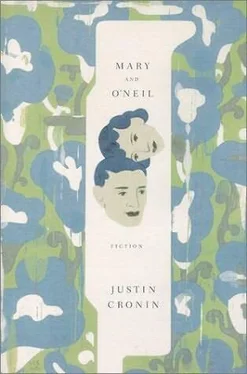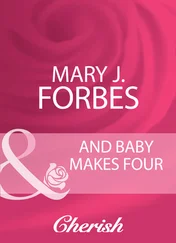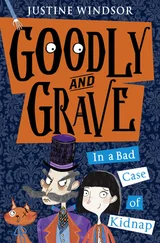O’Neil turns from the mirror to tell his friends he’s ready, and finds them standing at the far window, their broad backs toward him. His eyes follow their gaze; it is Simone, once again crossing the lot to her car. O’Neil’s first thought is that he isn’t so late after all, that not all the guests have left. But then this thought is pushed aside, he sees Simone through his friends’ eyes, and he knows he is looking at a beautiful woman, maybe the most beautiful woman he has ever seen in his life, crossing the lot below them. Her steps are slow, graceful, without calculation; she seems almost to float. O’Neil is filled with a reverent awe, traveling the length of his body like a beam of light.
“Unbelievable,” Stephen says.
“They’re different from us.” Connor, his hands buried in his pockets, shakes his head in amazement. “It’s really very simple. I speak not as a married man but as a scientist.”
The three men watch while she opens the driver’s door, removes her hat, and, balanced on her slender heels, lowers herself sideways onto the driver’s seat, her legs dangling out of the car so that she can smooth the front of her dress. She pulls the door shut behind her, places the hat on the seat beside her, and arches her back to examine herself in the rearview mirror, pushing a hand through her long hair. The engine purrs to life and she backs out of the drive.
Still they do not move. The silence of the room falls over them. It is as if they have seen an apparition, a sign, as if they have dreamed the same dream together. Then his friends see that he is ready, they gather their things, and they take O’Neil to his wedding.
It is twelve-fifteen by the time they arrive at the house, and O’Neil’s sister meets him at the door. It rained a while back, she tells him, after they spoke on the phone; just a shower, but the path is too muddy to go up the hill.
“I know,” O’Neil says. “Where’s Mrs. Cavanaugh? I’ll talk to her.”
O’Neil enters the crowded house to look for the minister and finds her in the den, taking a last look at her notes for the homily. She is wearing a thick wool sweater under her vestment, and O’Neil hugs her, embarrassing both of them, because he has never hugged her before. “I think we’re going to do it under the tent,” he tells her. “If that’s okay. Plan B.”
They agree to start in about ten minutes, and O’Neil excuses himself to find Mary. But out in the living room he realizes it’s hopeless; Mary is upstairs with her friends, and he knows that if she wanted to see him she would be downstairs now. His gaze travels the packed room. Somehow, everyone seems to know that the wedding is moments away, and O’Neil realizes that, just as he had wished, all the last decisions have been made for him, that his late arrival was expected and understood, as much a part of the fabric of the day as food and vows and the problem of the weather. There is nothing more to do now, nothing to arrange. He sees a photographer gliding through the crowd, and notices for the first time that the room is filled with flowers; he hears, drifting from the lawn outside, the sound of a fiddle, playing a waltz that he and Mary chose a month before, though he does not remember choosing it, just as he does not remember hiring the photographer or ordering the flowers; none of these. Stephen hands him a glass of water, and he drinks it down in one gulp, asks for another, and drinks that down too. It is May twenty-ninth, O’Neil thinks. I am thirty years old. The woman I will marry is upstairs. These simple facts seem suddenly to hold his whole life, and he is glad for it, right down to his bones. They have saved him, though he did not know he had to be saved. And something he heard earlier in the day comes back to him: Then, you and she will be together. That’s the nicest part, I think.
His sister is beside him. “See?” she says. “It’s not so hard.”
“So this is what it’s like.”
“That’s right, hon.” Kay smiles at him and takes his arm. “This is what it’s like.”
She leads him outside. The guests have followed them out to the lawn, and O’Neil sees that chairs have been put under the tent with an aisle for them to pass through, and that the sky is low and gray. He sees that two chairs are empty, where his parents would be, and he remembers what it was like to love them, as, with his sister and Stephen, he follows Erin Cavanaugh to the front of the tent. He turns and as he turns the day drops away and his vision takes in the whole company-Mary’s parents and siblings, the people they work with and have gone to school with, their friends and their children-and in his heart he marries each one of them, for he knows that this is the one sacrament, the one blessing in his life; and then they, too, depart his consciousness, leaving only Mary, who stands at the far end of the tent. Slowly she approaches, her hair wreathed in the deep silence of flowers; then she is there. Mary. He takes her hand, and then, as if they themselves had willed it-as if such acts of love were possible-a soft wind shakes the tent, the air descends, and gently, it begins to rain.
April 1993
THEY WERE NOT gamblers, but the resort had a small casino, and that was where they spent the first two days. Kay and Jack: the trip was a reward for two hard years, the rough waters they had crossed together, and though they had imagined it as time together as a family, empty days lounging in the stolen sunshine, they had barely stepped outdoors. They left to eat and sleep and check on Mia and the boys, but always they returned-both winning and losing, yet always winning a little more-and by the morning of the third day, after a twelve-hour run when they had not gone to bed at all, they were ahead four thousand dollars, enough to pay for the week-long trip.
It was Kay who decided to stop. Ten A.M.: she’d just won three hands in a row-another sixty dollars-when an overdue exhaustion washed over her, a sense of absolute completeness, like the last bite of a meal. She understood at once that she was done.
“You know, I think I’ve had it,” she said.
Jack nodded, but kept his eyes on the table. His cheeks and chin were dusted with stubble the color of ash. He signaled to the dealer, a young black man with dreadlocks and a fine, copper-colored nose, that he was in. Expressionless, the young man dealt the cards: a ten, and an eight on top. The dealer drew a deuce. Jack waved a flat hand over his cards to say that he would hold where he was. His bets were small, ten or twenty dollars, but many times just five. He gambled carefully but also with a bemused wonder, like a man puzzling over a problem that seemed to work no matter what he did. He was an economist, but his work was very theoretical; when it came to actual dollars, he had no head at all. It was Kay who balanced the checkbook and paid the bills and kept the ship on course. She watched as Jack won again.
“Jack? Are you listening? Let’s cash in.”
He kissed her quickly on the forehead. “Go get some sleep if you want.”
The idea made her yawn. Four thousand dollars: not a fortune, she thought, but certainly a reason to be cautious. She had friends from college who had real money now: the bankers and lawyers who were just making partner, the doctors whose loans were finally paid off, even a novelist whose books did well. She read their news in the alumni bulletin and felt a stab of envy. To such people, she knew, four thousand dollars would seem like nothing at all. And yet it had taken Kay and Jack most of a year to set aside that sum, stealing a few hundred dollars here and there from his salary at the college.
Now the same amount sat before them on the table, neat rows of blue and red chips with the name of the resort etched at the center-a windfall that had cost them nothing. What was it about these chips that made them so pleasant to the touch? As tired as she was, still she longed to hold them in her hands.
Читать дальше












